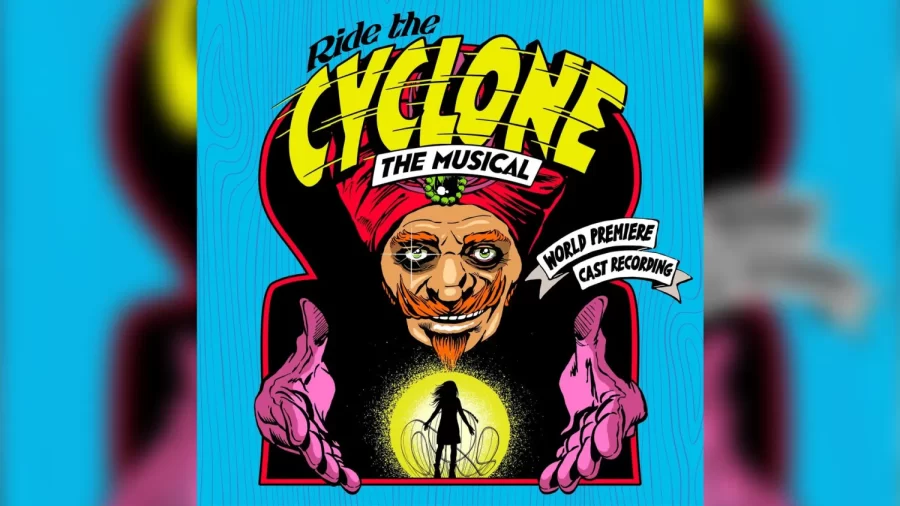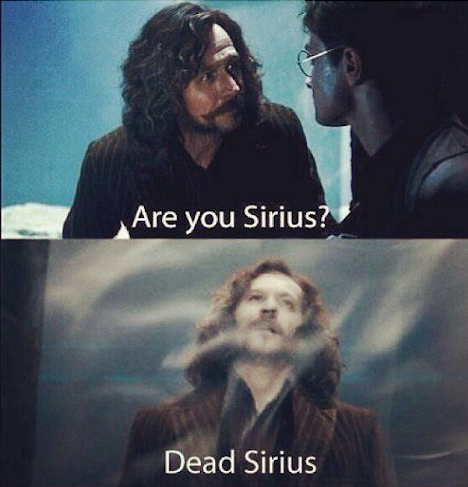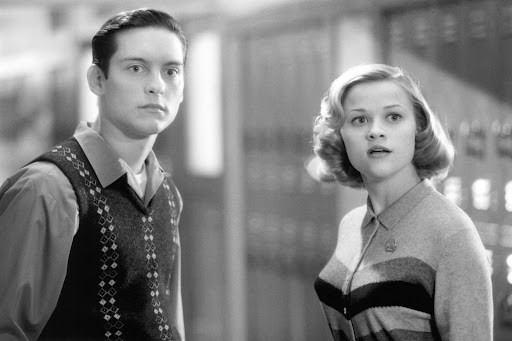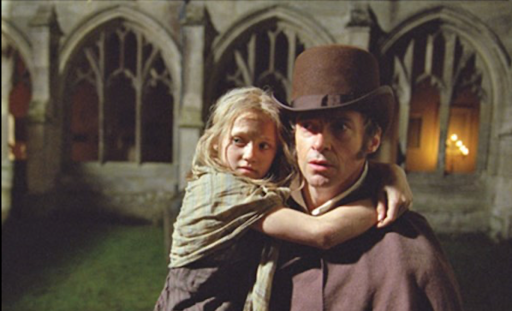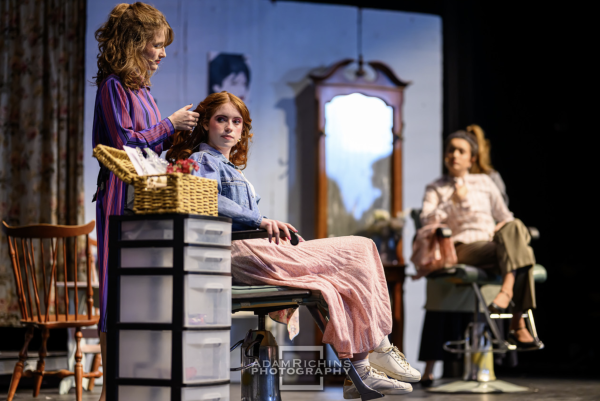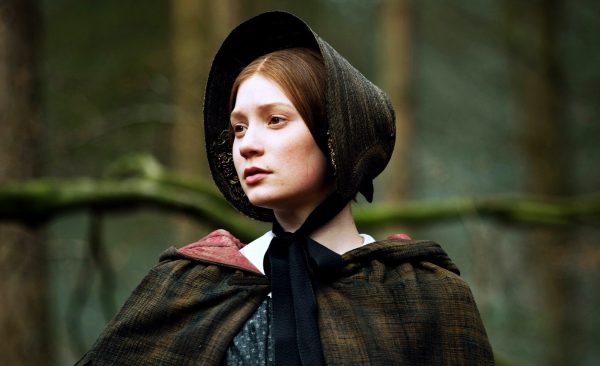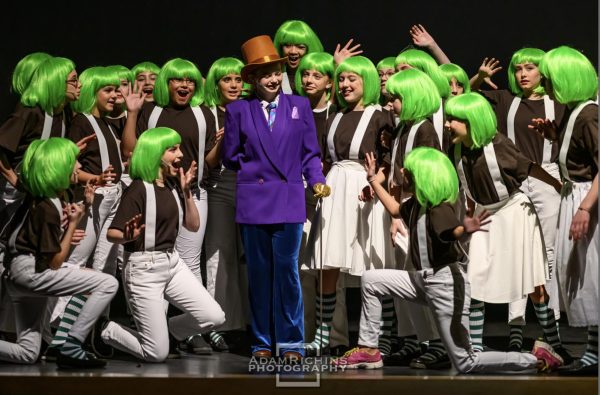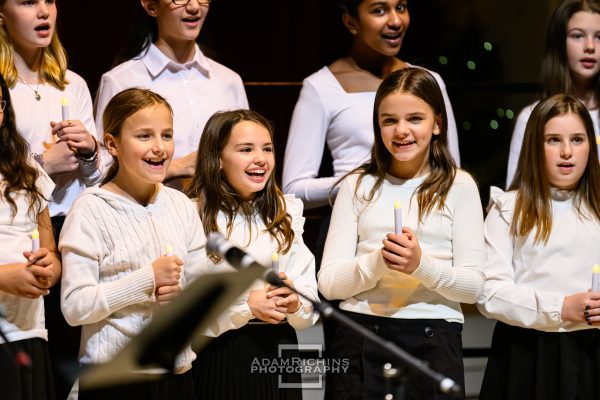Ride the Cyclone: The Best Musical You’ve Never Heard Of
Somehow, the bizarre storyline aligns with the amazing musical numbers and unique characters to make a musical that is unlike any other.
A couple of weeks ago, I had a conversation with one of my friends that went something like this:
Her: “One song that I really love right now is ‘The Ballad of Jane Doe.’”
Me: “Oh, I haven’t heard that one. Who’s it by?”
Her: “Ride the Cyclone.”
Me: “…what’s that?”
Her (insert death stare here): “It’s a MUSICAL.”
Without context, that might make her seem mean, but I am an avid theatre kid, and I am usually the one who has to explain when something is a musical theatre reference. I was shocked that there was a musical that I had never heard of, especially one that was seemingly very good. Downloading the album, I immediately listened to all of the songs and read a synopsis online. It’s safe to say that I am now completely obsessed.
The plot’s premise is that six teenagers die in a roller coaster accident and compete for a chance to be brought back to life by a sentient mechanical fortune-telling machine. Yes, I’m aware, it’s very strange. But somehow, the bizarre storyline aligns with the amazing musical numbers and unique characters to make a musical that is unlike any other. (In a good way.)
At the beginning of the show, we are introduced to Karnak, a mechanical fortune teller at a carnival near Uranium City, Saskatchewan. He tells the audience that a rat is gnawing through his power cable, and due to that he will die soon. He also explains to us that when he reads someone’s fortune, he sees the time and place of their death. However, the carnival has set him to “Family Fun Mode,” meaning that he can only say things like “Your lucky number is seven!”
He read the fortunes of five high schoolers, members of the St. Cassian High School’s chamber choir. When he did that, he saw that they would all die on the Cyclone roller coaster that night, which they did. Those teenagers then enter the stage, confused by everything that is happening. Karnak explains to them that he is dying, but before he does, he has the power to send one of them back to life. All of them must compete for that chance by explaining in song why they should be brought back. One more contestant is also introduced. She also died on the Cyclone, losing her head in the accident. She was wearing a St. Cassian’s uniform, but nobody remembers another member of the choir, and nobody claimed her body. She cannot remember anything, not even her name. The coroner dubbed her “Jane Doe.”
The first to compete is Ocean O’Connell Rosenberg. She is a straight-A student, bossy, and an overachiever and believes she should be brought back because she is the only one of them who could actually make a difference in the world. Her song, “What the World Needs,” is my personal favorite.
Next is Noel Gruber. He is the only openly gay person in Uranium City. He loves old black-and-white French movies, wishes he was a character from one of them, and dreams of moving to France. However, he is stuck in Uranium working at a Taco Bell. His song, “Noel’s Lament,” is the only one marked as explicit on the album, so that should tell you something.
The third contestant is Mischa Bachinski. He was born in Ukraine, but his mother died due to radiation poisoning in the aftermath of the Chernobyl disaster. On her deathbed, she put Mischa up for adoption to Canada. He seems angry and violent but has a soft side. He has an internet girlfriend named Talia who lives in Ukraine; he is saving up to travel back there and marry her. His song is called “This Song Is Awesome/Talia” and switches between autotuned rap and a love ballad.
Fourth is Ricky Potts. Ricky was born with a degenerative disease, resulting in his being mute and having to use crutches to walk. Why is he a member of the choir if he can’t sing? I don’t think we ever find out. Anyway, in the afterlife, Ricky is no longer held back by his disabilities and sings a rock song called “Space Age Bachelor Man.” We learn that he made himself an elaborate fantasy world during his life in which he is the savior of a distant planet populated by cat-humans.
Then it’s the turn of quiet, mysterious, spooky Jane Doe. She sings “The Ballad of Jane Doe,” about her despair over never knowing her true past. The other choir members begin to warm to her and her sad story.
Finally, Constance Blackwood, “the nicest girl in town,” sings about how she secretly hated life in Uranium until the accident when she saw everything from a different point of view, literally and figuratively. Her song “Sugar Cloud” is about how she is finally unafraid to let loose, just when it is too late.
Now all the contestants have put their cases forth and are preparing to vote. Suddenly, however, Karnak decides to change the rules. Instead of voting, Ocean will have the final say in who returns to the land of the living. Ocean realizes sickeningly that she could never vote for herself. She confers with the others, and they decide to send Jane back. The rest of them led happy lives, and they want Jane to have that chance as well. Karnak reveals that Jane’s real name is Penny Lamb, a character in a different play written by the same people as Ride the Cyclone (Easter egg alert!). Then he dies, and the five remaining teenagers pass into whatever comes next in a rousing final number called “It’s Not a Game/It’s Just a Ride.”
What this all comes down to is my personal three favorite aspects of the show. The first is the music. From the hauntingly beautiful “The Ballad of Jane Doe” to the very synthetic-sounding “This Song is Awesome,” the show’s soundtrack is a must-listen. Second are the relatable characters. Intelligent Ocean, sweet Constance, and overlooked Ricky are all examples of this. Lastly, the mysterious ending has sparked debate among fans of the show. What happens to the choir members after the end of the show? Nobody knows, and I find that fascinating. It also feels a bit like an excuse since nobody really knows what happens after death, but it works, and it works well.
All of these things combine to make a show that is amazing, fast-paced, and slightly morbid. I find it to be one of the best musicals I know– and I know a lot of musicals! I am very glad I heard about this musical and am happy to recommend it to more potential listeners (and maybe fellow obsessors…?).
By Elise Fujawa ‘28, Staff Writer
28efujawa@montroseschool.org

